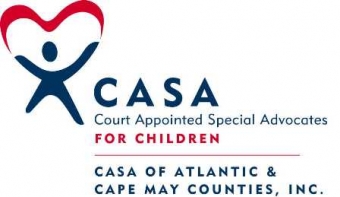- Education Topics
- Achievement Gap
- Alternative Education
- American Education Awards
- Assessment & Evaluation
- Education during COVID-19
- Education Economics
- Education Environment
- Education in the United States during COVID-19
- Education Issues
- Education Policy
- Education Psychology
- Education Scandals and Controversies
- Education Reform
- Education Theory
- Education Worldwide
- Educational Leadership
- Educational Philosophy
- Educational Research
- Educational Technology
- Federal Education Legislation
- Higher Education Worldwide
- Homeless Education
- Homeschooling in the United States
- Migrant Education
- Neglected/Deliquent Students
- Pedagogy
- Sociology of Education
- Special Needs
- National Directories
- After School Programs
- Alternative Schools
- The Arts
- At-Risk Students
- Camps
- Camp Services
- Colleges & Universities
- Counties
- Driving Schools
- Educational Businesses
- Financial Aid
- Higher Education
- International Programs
- Jewish Community Centers
- K-12 Schools
- Language Studies
- Libraries
- Organizations
- Preschools
- Professional Development
- Prom Services
- School Assemblies
- School Districts
- School Field Trips
- School Health
- School Supplies
- School Travel
- School Vendors
- Schools Worldwide
- Special Education
- Special Needs
- Study Abroad
- Teaching Abroad
- Volunteer Programs
- Youth Sports
- For Schools
- Academic Standards
- Assembly Programs
- Blue Ribbon Schools Program
- Educational Accreditation
- Educational Television Channels
- Education in the United States
- History of Education in the United States
- Reading Education in the U.S.
- School Grades
- School Meal Programs
- School Types
- School Uniforms
- Special Education in the United States
- Systems of Formal Education
- U.S. Education Legislation
- For Teachers
- Academic Dishonesty
- Childcare State Licensing Requirements
- Classroom Management
- Education Subjects
- Educational Practices
- Interdisciplinary Teaching
- Job and Interview Tips
- Lesson Plans | Grades
- Professional Development
- State Curriculum Standards
- Substitute Teaching
- Teacher Salary
- Teacher Training Programs
- Teaching Methods
- Training and Certification
- For Students
- Academic Competitions
- Admissions Testing
- At-Risk Students
- Career Planning
- College Admissions
- Drivers License
- Educational Programs
- Educational Television
- High School Dropouts
- Higher Education
- School Health
- Senior Proms
- Sex Education
- Standardized Testing
- Student Financial Aid
- Student Television Stations
- Summer Learning Loss
Home | National Directories | Volunteer Program | Court Appointed Special Advocates (CASA) of Atlantic and Cape May Counties |
Court Appointed Special Advocates (CASA) of Atlantic and Cape May Counties

Basic Information
Address: 321 Shore Road
Somers Point, NJ 08244
Phone Number: (609) 601-7800
Fax Number: (609) 601-7900
Email: staff@atlanticcapecasa.org
Director: Angela J. Waters
Action Shots
* There are currently no photos associated with this listing.
Additional Information
Causes Served: Foster Children
Clearances Required: Yes
Background Check: Yes
Population Served: foster children
Ages for Volunteer: over the age of 21
Hours of Service: varies
Minimum Hours Required: 4-8 per month
Days of Service: varies
Mission Statement:
Court Appointed Special Advocates of Atlantic & Cape May Counties, Inc. and its trained volunteers speak on behalf of abused and neglected children in the foster care system and are dedicated to ensuring these children are placed in safe permanent homes as quickly as possible.
Program History:
Court Appointed Special Advocates (CASA) of Atlantic and Cape May Counties, Inc. was founded in 1995 by a foster care mother after grieving the death of a foster child who once resided in her home. Her mission was to work to prevent "even one more child from falling through the cracks of our child welfare proceedings." The program operated on a small scale it its early years of existence.
In July of 2001, after receiving a grant from the National CASA Association, CASA revitalized its board, hired staff and increased its overall operating capacity. Today, CASA serves over 290 children. Our goal is to continue training volunteers until we can provide a volunteer advocate for every child living within the foster care system.

